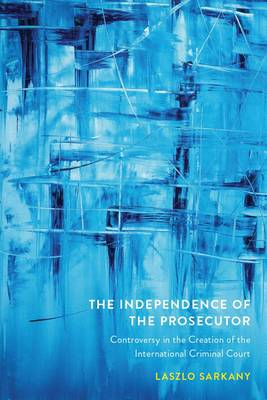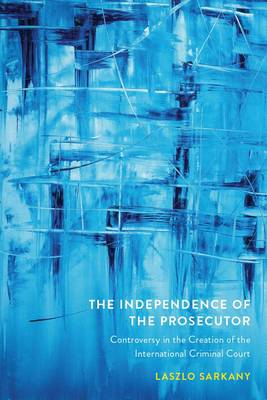
- Retrait gratuit dans votre magasin Club
- 7.000.000 titres dans notre catalogue
- Payer en toute sécurité
- Toujours un magasin près de chez vous
- Retrait gratuit dans votre magasin Club
- 7.000.0000 titres dans notre catalogue
- Payer en toute sécurité
- Toujours un magasin près de chez vous
The Independence of the Prosecutor
Controversy in the Creation of the International Criminal Court
Laszlo Sarkany
152,95 €
+ 305 points
Format
Description
Explores the inception of the International Criminal Court. The establishment of the International Criminal Court was a singular, even revolutionary, achievement. Uniquely within the realm of international criminal justice, the ICC prosecutor can initiate investigations independently of any state's wishes. Why would sovereign states agree to such sweeping powers? The Independence of the Prosecutor draws on interviews with key participants to answer that question. Case studies of Canada and the United Kingdom, which supported prosecutorial independence, and the United States and Japan, which opposed it, demonstrate that state positions depended on the values and principles of those who wielded the most power in national capitals at the time. Appendices provide a record of the arguments made by state delegations in the negotiations that produced the institutional design of the court. This astute investigation demonstrates that now, over twenty years after its establishment, the innovative arrangement of utilizing an independent prosecutor continues to move international law forward and directly combat impunity for mass atrocities.
Spécifications
Parties prenantes
- Auteur(s) :
- Editeur:
Contenu
- Nombre de pages :
- 248
- Langue:
- Anglais
- Collection :
Caractéristiques
- EAN:
- 9780774869966
- Date de parution :
- 09-01-25
- Format:
- Livre relié
- Format numérique:
- Genaaid
- Dimensions :
- 160 mm x 230 mm
- Poids :
- 517 g

Les avis
Nous publions uniquement les avis qui respectent les conditions requises. Consultez nos conditions pour les avis.






